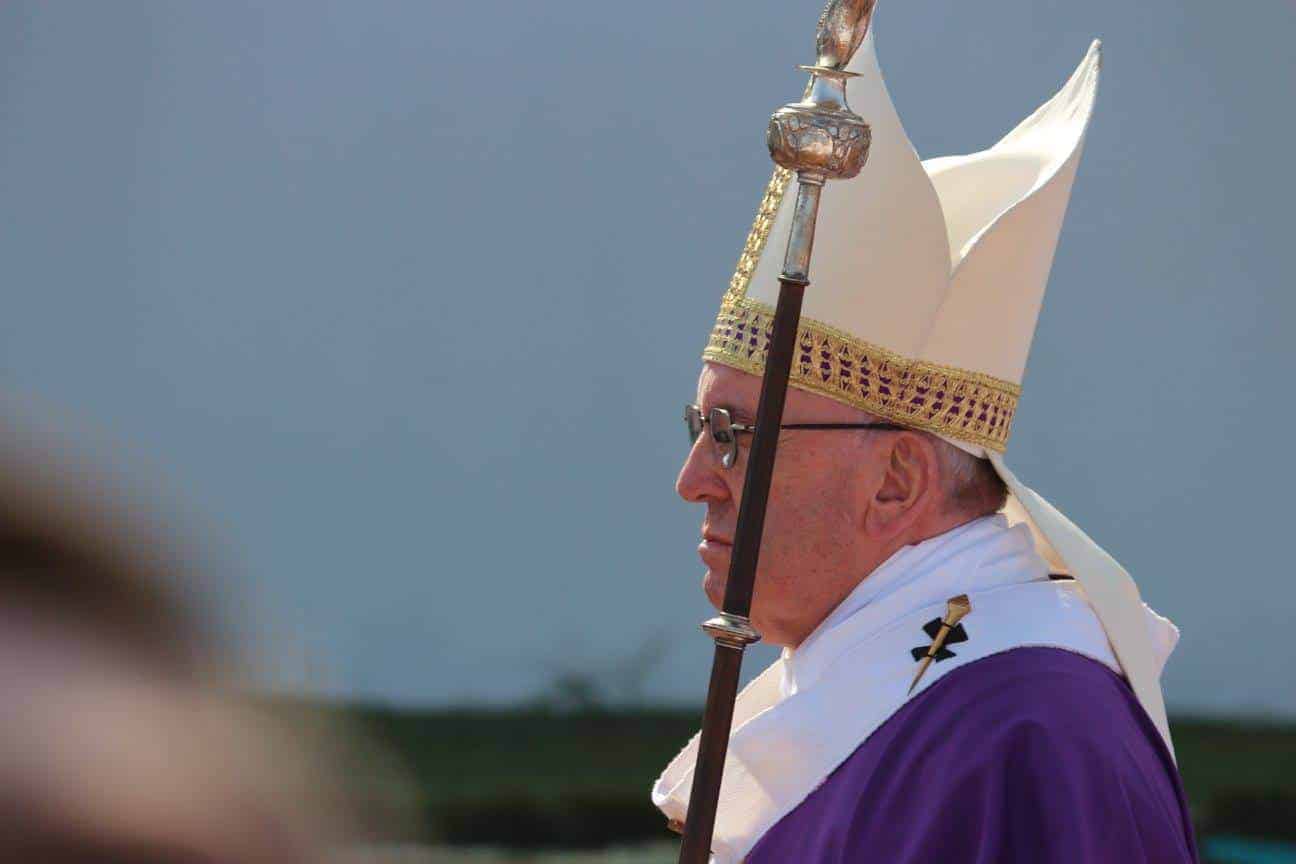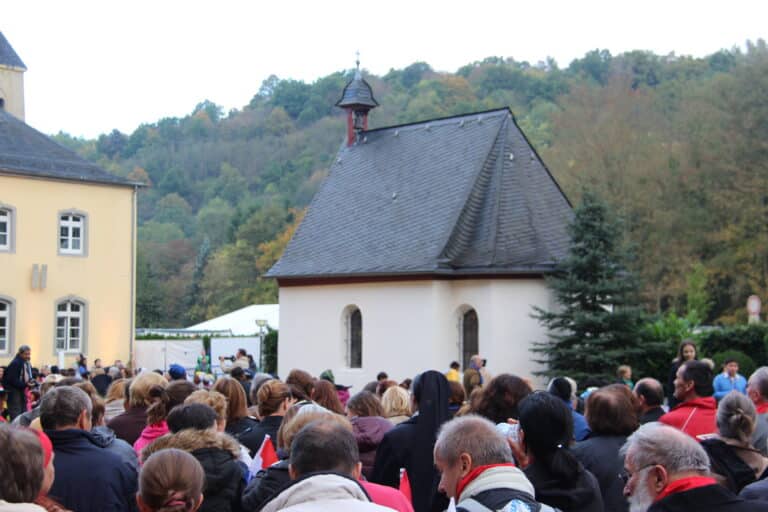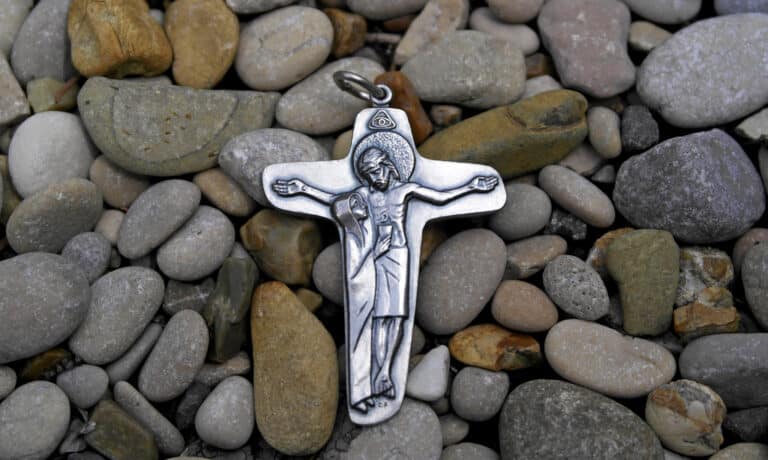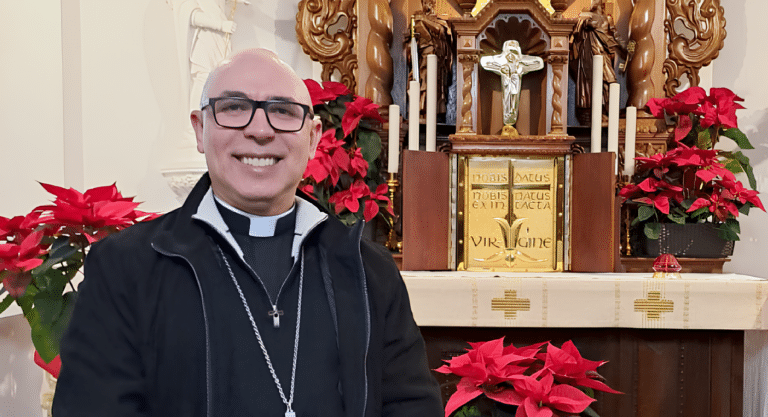Each day, there is a growing “NO” to the death penalty around the world. For the Church, this is a sign of hope.
From a legal point of view, it is not necessary.
Society can effectively repress crime without definitively depriving the offenders of the possibility of redeeming themselves.
Always, in every legal sentence, there must be a window of hope.
Capital punishment offers no justice to victims, but rather encourages revenge.
And it prevents any possibility of undoing a possible miscarriage of justice.
Additionally, the death penalty is morally inadmissible, for it destroys the most important gift we have received: life. Let us not forget that, up to the very last moment, a person can convert and change.
And in the light of the Gospel, the death penalty is unacceptable. The commandment, “Thou shalt not kill,” refers to both the innocent and the guilty.
I, therefore, call on all people of goodwill to mobilize for the abolition of the death penalty throughout the world.
Let us pray that the death penalty, which attacks the dignity of the human person, may be legally abolished in every country.

Pope Francis: “The death penalty is inadmissible”
Respect for the life of all persons and the possibility of conversion are motives for rejecting the death penalty.
In his message, the Holy father says that “capital punishment offers no justice to victims, but rather encourages revenge.”
The Pope points out that is legally unnecessary and warns about possible miscarriages of justice.
The Pope Video for September has just been released with the prayer intention that the Holy Father is entrusting to the entire Catholic Church through the Pope’s Worldwide Prayer Network. This month, Francis invites us to pray “that the death penalty, which attacks the dignity of the human person, may be legally abolished in every country”.
Capital punishment continues to be present in the world
In this edition of the Pope Video—produced in collaboration with the Catholic Mobilizing Network, a U.S. based Catholic organization working to end the death penalty and promote restorative justice through education, advocacy, and prayer—Pope Francis celebrates the fact that rejection of the death penalty is spreading throughout the world, something the Church considers “a sign of hope.” Indeed, according to data from the United Nations, some 170 countries have abolished the death penalty, have imposed a moratorium on its implementation in legislation or in practice, or have suspended executions for more than 10 years. Nevertheless, capital punishment continues to be applied in 55 countries on various continents.
The Church’s position on the death penalty
From John Paul II to Benedict XVI, the popes have spoken out firmly in recent decades against the use of capital punishment by governments. Pope Francis took an additional step in 2018 by approving a new paragraph in the catechism, clearly condemning capital punishment and expressing the Church’s commitment to its complete abolition.
In this month’s video, which arrives at a moment marked by news of death sentences and executions in various parts of the world, the Holy Father calls upon not only Christians, but all people of good will. He reiterates that “capital punishment offers no justice to victims, but rather encourages revenge.” From a moral perspective, it is inadmissible because “it destroys the most important gift we have received: life.” Finally, “in the light of the Gospel, the death penalty is unacceptable. The commandment, ‘Thou shalt not kill,’ refers to both the innocent and the guilty.” In addition, there are other motives for rejecting the death penalty: possible miscarriages of justice, and the fact that “up to the very last moment, a person can convert and can change.” “Always, in every legal sentence, there must be a window of hope,” Francis explains.
In response to the Pope’s prayer video, Krisanne Vaillancourt Murphy, executive director of Catholic Mobilizing Network, says, “Pope Francis’ prayer intention reminds us that capital punishment continues cycles of harm and violence and perpetuates a throwaway culture. The tragic myth of the death penalty is that it kills the ‘worst of the worst,’ but the truth is it actually targets society’s most vulnerable people: those with mental illness, those with inadequate legal representation, and people living in poverty or marginalized populations. Ending the death penalty is within reach, and it’s one clear way we can build a culture of life. Every person, no matter the harm they may have caused or suffered, has God-given dignity and deserves an opportunity for restoration. This month, may we, the Body of Christ, answer the Holy Father’s call to unite ourselves in prayer and prophetic action — not only for the abolition of capital punishment worldwide, but for the advancement of forms of justice that enable healing and transformation.”
Fr. Frédéric Fornos, S.J., International Director of the Pope’s Worldwide Prayer Network, commented on this intention: “This month, Francis invites us to pray for the abolition of the death penalty, reiterating what he said in Fratelli tutti and specified in the Catechism of the Catholic Church: the Church ‘works with determination for its abolition worldwide.’ Why? Because until the last moment, a person can convert, recognize his crimes, and change. Capital punishment, however, is like putting oneself in God’s place. A death sentence determines that a person will no longer be able to change, something we don’t know. This month of September, the Pope invites us to pray and mobilize to concretely support associations and organizations that fight for the abolition of the death penalty.”



